Filter by
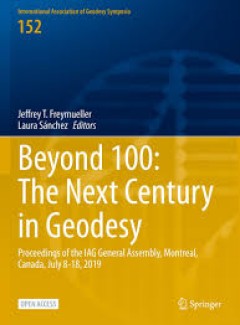
Beyond 100: The Next Century in Geodesy
Establishing an International Height Reference Frame (IHRF) has been a major goal of the International Association of Geodesy (IAG) for a long time. One challenge is to obtain the vertical coordinates, i.e., geopotential numbers, of the reference stations with high precision and global consistency
- Edition
- -
- ISBN/ISSN
- 9783031098574
- Collation
- 286
- Series Title
- -
- Call Number
- -

Arrival Cities: Migrating Artists and New Metropolitan Topographies in the 20…
The impact of migrating artists on modern art Exile and migration played a critical role in the diffusion and development of modernism around the globe, yet have remained largely understudied phenomena within art historiography. Focusing on the intersections of exile, artistic practice, and urban space, this volume brings together contributions by international researchers committed to revising…
- Edition
- -
- ISBN/ISSN
- -
- Collation
- oer.unej.ac.id
- Series Title
- -
- Call Number
- -
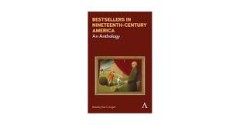
Bestsellers in Nineteenth-Century America
- Edition
- -
- ISBN/ISSN
- 9781783085798
- Collation
- -
- Series Title
- -
- Call Number
- -
- Edition
- -
- ISBN/ISSN
- 9781783085798
- Collation
- -
- Series Title
- -
- Call Number
- -
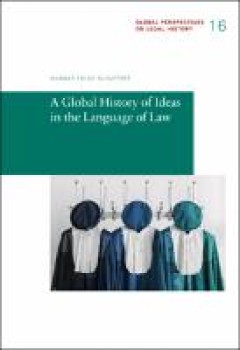
A Global History of Ideas in the Language of Law
This book argues that the narrowing focus of the global history of ideas on narratives in historical research, philosophy and political theory neglects the fact that the central concepts of the history of political ideas are articulated in the language of law. Key figures of the history of ideas, like Kant, Hegel and Weber, engaged deeply with the philosophy and sociology of law. This monograph…
- Edition
- -
- ISBN/ISSN
- 9783944773315
- Collation
- 328 hlm
- Series Title
- -
- Call Number
- -

A Genealogy of Bamboo Diplomacy : The Politics of Thai Détente with Russia a…
In 1975, M.R. Kurkrit Pramoj met Mao Zedong, marking the eventual establishment of diplomatic relations and a discursive rupture with the previous narrative of Communist powers as an existential threat. This book critically interrogates the birth of bamboo (bending with the wind) diplomacy and the politics of Thai de?tente with Russia and China in the long 1970s (1968-80). By 1968, Thailand was…
- Edition
- -
- ISBN/ISSN
- 9781760464998
- Collation
- 336 hlm
- Series Title
- -
- Call Number
- -
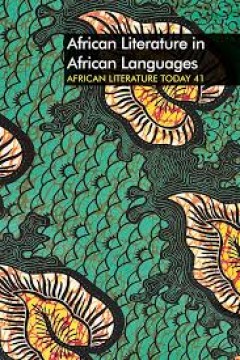
African Literature in African Languages
Interrogates and explores African literature in African languages today, and the continuing interfaces between works in indigenous languages and those written in European languages or languages of colonizers. Sixty years after the Conference of African Writers of English Expression at Makerere University, the dominance in the global canon of African literatures written in European languages ove…
- Edition
- -
- ISBN/ISSN
- 9781847013460
- Collation
- -
- Series Title
- -
- Call Number
- -

“Proletarian Hegemony” in the Chinese Revolution and the Canton Commune o…
The Communist aim of proletarian hegemony in the Chinese revolution was given concrete expression through the Canton Commune—reflected in the policies and strategies that led to the uprising, in the makeup and program of the Soviet setup in Canton, and in the subsequent assessment of the revolt by the Comintern and the Chinese Communist Party. “Proletarian Hegemony” in the Chinese Revolut…
- Edition
- -
- ISBN/ISSN
- --
- Collation
- -
- Series Title
- -
- Call Number
- -
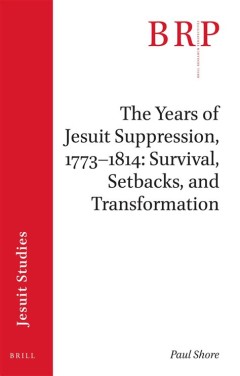
The Years of Jesuit Suppression, 1773–1814: Survival, Setbacks, and Transfo…
The forty-one years between the Society of Jesus’s papal suppression in 1773 and its eventual restoration in 1814 remain controversial, with new research and interpretations continually appearing. Shore’s narrative approaches these years, and the period preceding the suppression, from a new perspective that covers individuals not usually discussed in works dealing with this topic. As well a…
- Edition
- -
- ISBN/ISSN
- 9789004423374
- Collation
- 124 hlm,: ill, lamp;
- Series Title
- Brill Research Perspectives in Humanities and Social Sciences Brill Research Perspectives in Jesuit Studies
- Call Number
- -

Prosthetic Body Parts in Nineteenth-Century Literature and Culture
This open access book investigates imaginaries of artificial limbs, eyes, hair, and teeth in British and American literary and cultural sources from the nineteenth and early twentieth century. Prosthetic Body Parts in Nineteenth-Century Literature and Culture shows how depictions of prostheses complicated the contemporary bodily status quo, which increasingly demanded an appearance of physical …
- Edition
- 1
- ISBN/ISSN
- 978-3-030-78589-5
- Collation
- oer.unej.ac.id
- Series Title
- Palgrave Studies in Nineteenth-Century Writing and Culture
- Call Number
- -
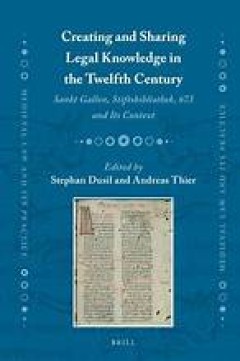
Creating and Sharing Legal Knowledge in the Twelfth Century
The Decretum Gratiani is the cornerstone of medieval canon law, and the manuscript St Gallen, Stiftsbibliothek, 673 an essential witness to its evolution. The studies in this volume focus on that manuscript, providing critical insights into its genesis, linguistic features, and use of Roman Law, while evaluating its attraction to medieval readers and modern scholars.
- Edition
- -
- ISBN/ISSN
- 978-90-04-42829-4
- Collation
- -
- Series Title
- Medieval Law and Its Practice, Volume: 35
- Call Number
- -
 Computer Science, Information & General Works
Computer Science, Information & General Works  Philosophy & Psychology
Philosophy & Psychology  Religion
Religion  Social Sciences
Social Sciences  Language
Language  Pure Science
Pure Science  Applied Sciences
Applied Sciences  Art & Recreation
Art & Recreation  Literature
Literature  History & Geography
History & Geography